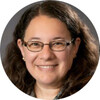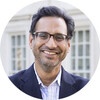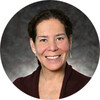30 Healthcare IT Influencers Worth a Follow in 2025

In today’s digital-first world, healthcare leaders must pair technological expertise with a people-centered approach to IT decisions. More healthcare organizations are adopting artificial intelligence to solve pressing issues, but it’s important to consider the impact on patient outcomes and experiences. With clinician burnout at an all-time high, prioritizing the needs of both patients and providers remains a top priority.
What does it mean to transform healthcare? For some, it means centering patients in conversations about their care and in their interactions with the healthcare system. For others, it means using tools such as AI to support clinical decision-making. Many in the industry are also focused on expanding access to care with virtual care solutions.
To celebrate the leaders, researchers and advocates driving patient- and clinician-centered innovation, HealthTech has compiled a list of 30 healthcare IT influencers driving innovation, equity and change in the healthcare space. Follow these leaders for valuable insights into the worlds of AI and data, digital health, patient and provider experience, and security.
SIGN UP: Get HealthTech’s weekly newsletter delivered straight to your inbox.
Did your blog, podcast or account make our 2025 Health IT Influencer List? If so, be sure to share the news with your followers!

Aashima Gupta is the global director of healthcare solutions for Google Cloud. In this role, she leverages the cloud, AI, application programming interfaces and other mobile solutions to accelerate healthcare’s digital transformation. Gupta is also a member of the HIMSS board of advisers. She posts updates on Google and explores how AI can improve healthcare delivery.

John Brownstein wears many hats. He is chief innovation officer and senior vice president at Boston Children’s Hospital, a professor at Harvard Medical School and a medical contributor for ABC News. Brownstein is also an infectious disease epidemiologist and has co-founded multiple companies throughout his career. He posts about digital health, innovation and infectious disease news and looks at the ways AI can improve care delivery and disease management.

Nigam Shah is the chief data scientist at Stanford Health Care in addition to his roles as associate dean and professor of medicine and biomedical data science at Stanford Medicine. His research group, Shah Lab, focuses on improving care using existing health data from sources such as the EHR, wearables and insurance claims. At Stanford Health Care, he uses AI and data science to advance disease insights and improve patient outcomes.

Dr. Rebecca Mishuris joined Mass General Brigham in 2023 as its chief medical information officer and is responsible for vision and strategy related to clinical information systems. Mishuris conducts research on the integration of health IT, including the EHR, in care delivery to meet the goals of the Quintuple Aim. Her social media posts often focus on how AI is used in healthcare.

At UCSF Health, Dr. Sara Murray serves as the organization’s chief health AI officer, vice president and associate chief medical information officer for inpatient care. She is also an associate professor of clinical medicine for the University of California, San Francisco. In addition to ensuring the deployment of impactful and ethical AI and the development of machine learning models, she leads strategy for informatics, digital health and data science at the organization.

Tom Andriola is the vice chancellor for information, technology and data as well as the chief digital officer at the University of California, Irvine. He leads the strategic use of data and technology for UC Irvine in its role as a research university and healthcare provider. Andriola hosts the Digital Squared podcast, which explores how healthcare is evolving in an increasingly digital world.

Dr. Yasir Tarabichi is a clinical informatics leader with many roles across different organizations. He serves as the chief health AI officer and director of clinical research informatics for the MetroHealth System in Cleveland, co-investigator for the Centers for Disease Control and Prevention, and associate professor of medicine at Case Western Reserve University School of Medicine in addition to leadership positions at other organizations and digital health companies. Using the EHR to promote precision population health is a major focus for Tarabichi. He posts about AI in healthcare and has been featured on industry podcasts about how the technology can improve patient care.

Allyson Fryhoff is the managing director of healthcare and life sciences at Amazon Web Services. With previous experience at Salesforce and Oracle, she works to accelerate digital transformation in healthcare and create a positive impact with cloud technology. She posts about AWS’ progress in health IT and improving care delivery.

Registered nurse Charity Darnell is the assistant CIO and vice president at Methodist Health System in Dallas. She formerly served as chief clinical information officer at Texas-based Cook Children’s Health Care System, where she oversaw telehealth, the EHR, informatics, IT training and other clinical applications and workflows. With her background in nursing informatics, she focuses on deploying and managing digital health and technology solutions to enhance patient and clinician experiences.

For the past six years, Joe Velderman has served as vice president of innovation at Cypress Living in Fort Myers, Fla. He is a senior living professional who believes in the power of AI and digital health tools to improve clinician workflows, resident experiences and patient outcomes. Velderman often speaks at senior care conferences, where he shares insights into Cypress Living’s AI implementations.

Saad Chaudhry is the chief digital and information officer at SSM Health in St. Louis, where he oversees digital strategy. He is also an assistant professor at Georgetown University in Washington, D.C. He focuses on how technology can be used to improve patient and clinician experiences.

As CEO of the National Rural Health Association, Alan Morgan advocates for health equity and access for patients in rural areas. He has worked in health policy development for more than 30 years at the state and federal level. Morgan has been a contributing author for several publications focused on rural healthcare. He served as a legislative assistant for former U.S. Congressman Dick Nichols of Kansas and as deputy press secretary for former Kansas Gov. Mike Hayden. He posts about rural health policy and care access.

Anika Gardenhire, a registered nurse, is the chief digital and transformation officer for Ardent Health, where she oversees the organization’s development and implementation of digital strategy. She formerly served as assistant vice president for digital transformation at Intermountain Health. Today, Gardenhire ensures that Ardent’s IT infrastructure, data strategy, and governance align with patient needs and organizational goals. She is a regular panelist at health IT conferences.

Dr. Kedar Mate is the former president and CEO of the Institute for Healthcare Improvement, a nonprofit healthcare improvement organization focused on applying evidence-based quality improvement methods to healthcare challenges. He is also an assistant professor of medicine at Weill Cornell Medicine Medical College and the founder and CMO of Qualified Health. He posts about AI and digital health in addition to health equity.

Dr. Natalie Pageler is the chief medical information officer at Stanford Medicine Children’s Health. She also serves as a clinical professor at Stanford University. Pageler is a board-certified pediatric intensivist and clinical informaticist. She has led the creation of the health system’s digital health program; implemented tools and processes to enhance clinical efficiency; and developed clinical decision-support tools to improve education, efficiency, patient safety and quality of care. Pageler posts about digital health and clinical informatics.

In her role as chief nursing officer at Mayo Clinic, Ryannon Frederick uplifts nurses to transform healthcare. She is passionate about ensuring that staffers at every level contribute to innovation and patient care solutions. Frederick and her team pioneer AI tools such as ambient listening to support clinicians. She started her career as a registered nurse with Mayo Clinic in 2000, an experience that she brings to the table in her current leadership role.

Anahi Santiago is the CISO at ChristianaCare, based in Newark, Del. She has more than 20 years of experience in healthcare IT, with focus areas including cybersecurity, privacy, regulatory compliance, program management and infrastructure services. Santiago is responsible for ChristianaCare’s information security program and strategic direction. She posts about cybersecurity in healthcare on LinkedIn and shares her love of sports on X.

David Houlding is the director of global healthcare security and compliance strategy at Microsoft. He is an expert on blockchain in healthcare and has spoken at major industry conferences including HIMSS and HITRUST. He posts about cybersecurity, resilience and AI’s impact on security compliance.

Dr. Jeff Tully is an anesthesiologist, associate clinical professor of anesthesiology and the co-director of the Center for Healthcare Cybersecurity at UC San Diego Health. He is a security researcher who prioritizes patient safety. His work has explored vulnerabilities in 911 infrastructure, the exploitation of Health Level Seven protocols, and the potential for compromised medical devices. He shares his findings at security conferences around the U.S. In addition, he is the co-founder of the CyberMed Summit, a clinically focused healthcare cybersecurity conference.

CHIME National Cybersecurity Advisor Lisa Gallagher is a security expert with a background in healthcare. She previously served as vice president of technology solutions and senior director of privacy and security for HIMSS. She posts about healthcare cybersecurity, threats and resilience.
healthtechmagazine





